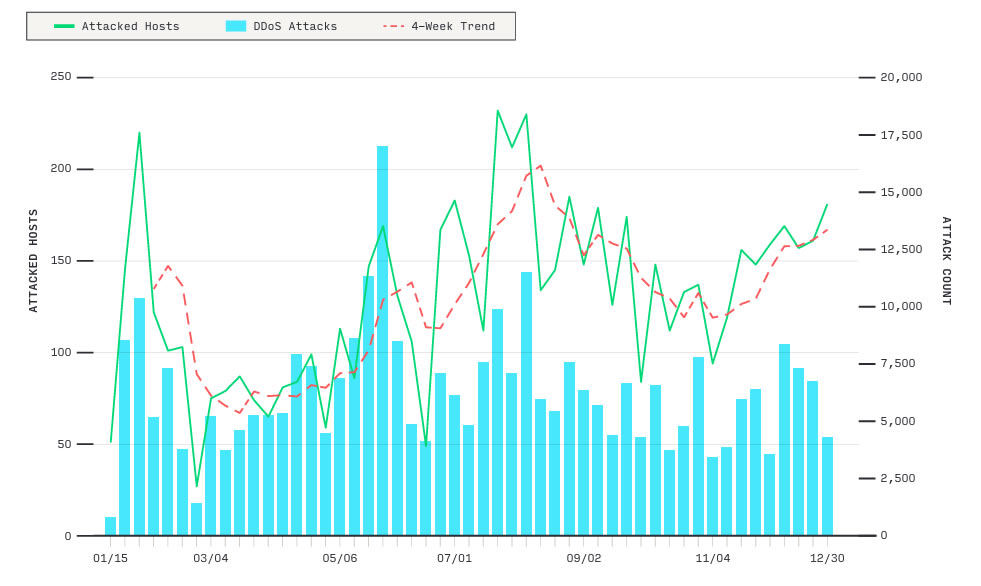Distributed denial-of-service (DDoS) attacks are increasingly surpassing many conventional cyber threats, evolving from a mere tool to a “dominant geopolitical weapon,” according to insights from a leading network security firm.
In the second half of 2024, global DDoS activity surged by 12.7% compared to the first half, totaling nearly 9 million attacks.
A DDoS attack aims to disrupt the regular web traffic directed at a specific server, service, or network by inundating the target and its infrastructure with a massive influx of internet traffic.
The most significant growth in DDoS incidents has been noted in Latin America and the Asia Pacific, with increases of approximately 30% and 20%, respectively, from the initial half of the year.
In the first half of 2024, the same firm reported 7.9 million DDoS attacks, leading to a total of 16.8 million for the entire year—an increase of nearly 30% compared to the 13 million attacks recorded in 2023.
Attackers are now employing this disruptive tool to “exploit national vulnerabilities to heighten chaos and diminish public trust in institutions,” as highlighted by the researchers.
The findings characterized DDoS attacks as “precision-guided digital weapons” that can significantly impact infrastructure during critical moments, particularly during sociopolitical unrest, elections, protests, and policy disagreements.

Weekly DDoS statistics, 2024.
AI Amplifying DDoS Attacks
The rise of DDoS-for-hire services, including booters and stressers, is “more potent than ever,” as cybercriminals harness AI and automation to circumvent CAPTCHA systems, with advancements moving towards features like behavior mimicry and real-time attack modifications.
According to the researchers, DDoS attacks “are no longer solely reliant on raw bandwidth” and have become “adaptive, persistent, and intricately intertwined with contemporary cyber and geopolitical conflicts.”
“The transition to high-powered enterprise infrastructure, comprehensive reconnaissance, the growth of AI-enhanced automation, and the rise of DDoS-for-hire services imply that attackers are evolving at an unprecedented rate.”
The role of DDoS attacks is changing as noted by the chief technology officer at Corero Network Security, who recently remarked that “by automating previously labor-intensive tasks or those needing specialized skills, AI is lowering the entry barriers for potential attackers.”
Related: Crypto crime in 2024 likely exceeded $51B, far higher than reported.
In August, a DDoS attack targeted Elon Musk’s social media platform, X, aiming to disrupt his interview with then-presidential hopeful Donald Trump.
The platform faced another significant cyberattack in March that hindered access for some users, claimed by a hacking group linked to Russia called “Dark Storm.” They asserted that the attack was not politically motivated.
Magazine: Financial nihilism in crypto is over — It’s time to dream big again.
